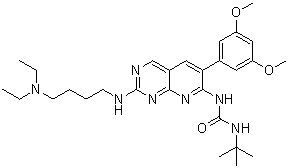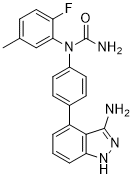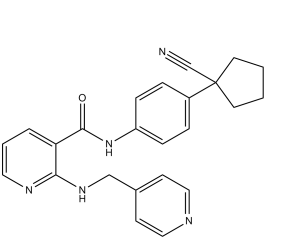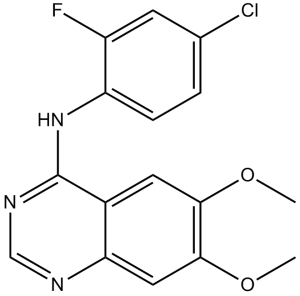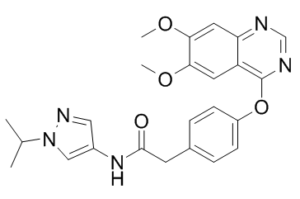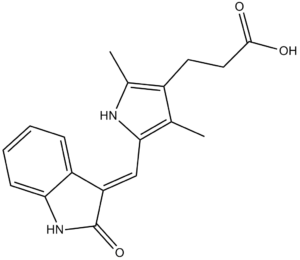PD173074 (PD-173074) is a novel, potent, cell permeable and selective FGFR1 inhibitor with potential antineoplastic activity.
Linifanib (formerly RG3635, ABT869, AL39324) is an orally bioavailable and ATP-competitive inhibitor of multiple kinases (e.g. VEGFR/PDGFR) with potential antitumor activity.
AAL-993 is a novel, orally bioavailable and highly potent VEGFR inhibitor that inhibits VEGFR1, 2, and 3 with IC50 values of 130, 23, and 18 nM, respectively.
JK-P3 is novel inhibitor of VEGFR-2.
Apatinib (formerly known as Rivoceranib, YN-968D1) is a potent, orally bioavailable, and selective inhibitor of the VEGF (vascular endothelial growth factor receptor) signaling pathway with potential antiangiogenic and antineoplastic activities.
SU 1498 is a selective inhibitor of the receptor tyrosine kinase VEGF receptor 2 (VEGFR2, aka FLK1; IC50 = 700 nM).
ZM-306416 (CB-676475) is a novel and potent tyrosine kinase inhibitor of VEGFR1 (vascular endothelial growth factor receptor 1) with potential antineoplastic activity.
AZD2932 (AZD-2932), a new quinazoline ether, is a novel, potent, high affinity and mutil-targeted tyrosine kinase inhibitor with potential anticancer activity.
Orantinib (formerly SU6668; TSU-68; NSC-702827; TSU 68; SU-6668) is a potent, orally bioavailable and multi-targeted receptor tyrosine kinase/RTK inhibitor with potential antineoplastic activity.
R1530 is a small-molecule inducer of polyploidy which interferes with tubulin polymerization and mitotic checkpoint function in cancer cells, leading to abortive mitosis, endoreduplication and polyploidy.
